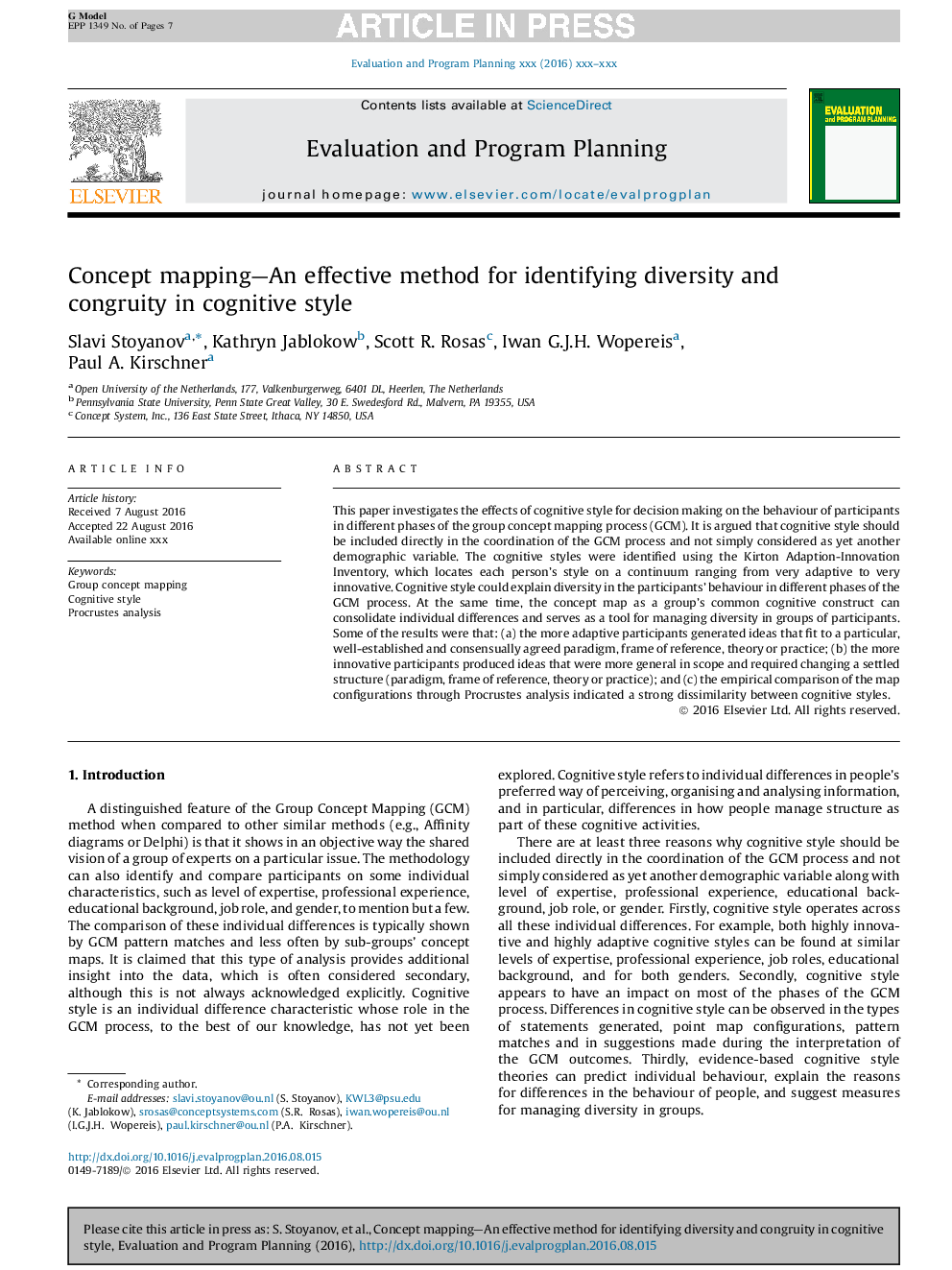| Article ID | Journal | Published Year | Pages | File Type |
|---|---|---|---|---|
| 4930963 | Evaluation and Program Planning | 2017 | 7 Pages |
Abstract
This paper investigates the effects of cognitive style for decision making on the behaviour of participants in different phases of the group concept mapping process (GCM). It is argued that cognitive style should be included directly in the coordination of the GCM process and not simply considered as yet another demographic variable. The cognitive styles were identified using the Kirton Adaption-Innovation Inventory, which locates each person's style on a continuum ranging from very adaptive to very innovative. Cognitive style could explain diversity in the participants' behaviour in different phases of the GCM process. At the same time, the concept map as a group's common cognitive construct can consolidate individual differences and serves as a tool for managing diversity in groups of participants. Some of the results were that: (a) the more adaptive participants generated ideas that fit to a particular, well-established and consensually agreed paradigm, frame of reference, theory or practice; (b) the more innovative participants produced ideas that were more general in scope and required changing a settled structure (paradigm, frame of reference, theory or practice); and (c) the empirical comparison of the map configurations through Procrustes analysis indicated a strong dissimilarity between cognitive styles.
Related Topics
Health Sciences
Medicine and Dentistry
Public Health and Health Policy
Authors
Slavi Stoyanov, Kathryn Jablokow, Scott R. Rosas, Iwan G.J.H. Wopereis, Paul A. Kirschner,
